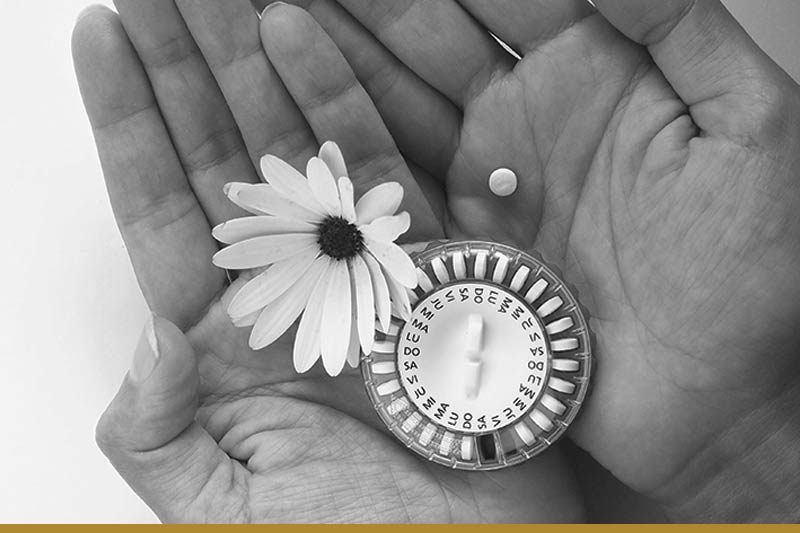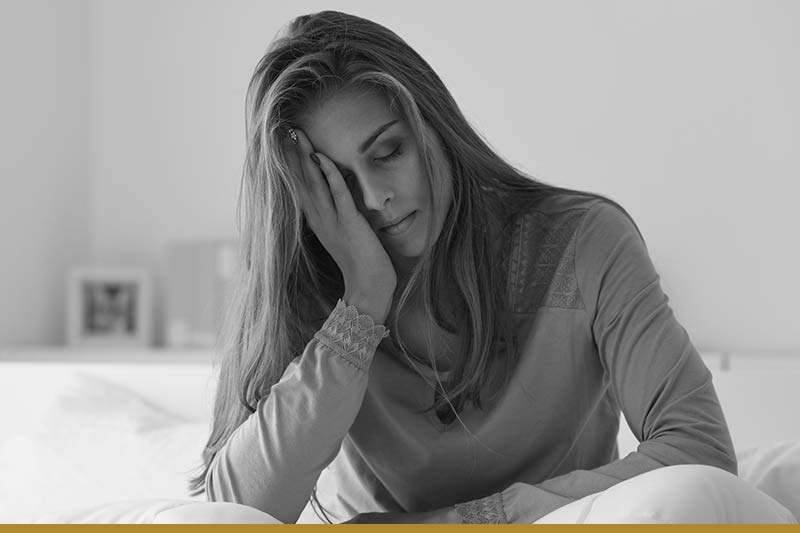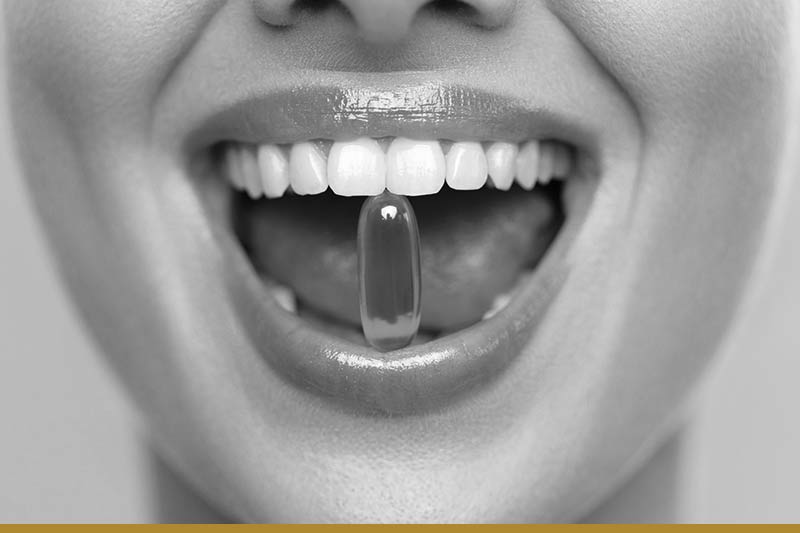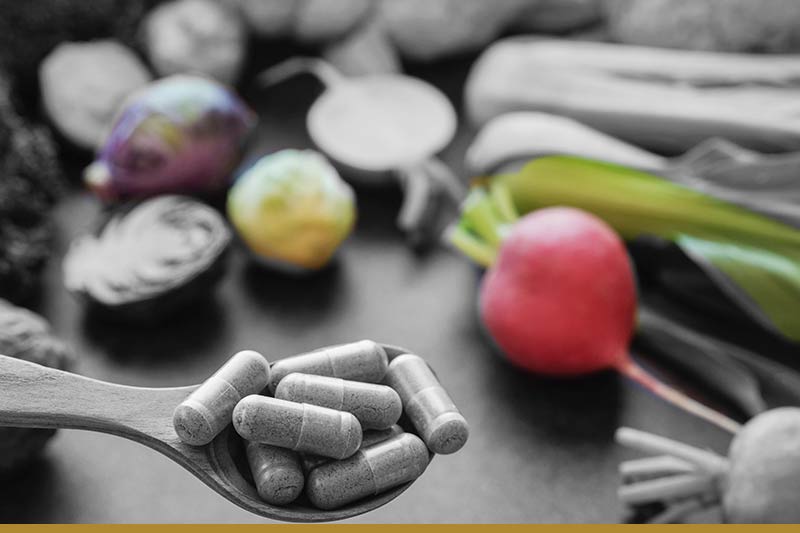Estrogen, the primary female sex hormone, declines with age or for various medical reasons. Low estrogen levels can cause a variety of uncomfortable symptoms, from hot flashes and insomnia to reduced sex drive and depression.
This article explains how to increase estrogen levels – from medically supported hormone therapy to estrogen-stimulating foods, herbs, and dietary supplements.

The following treatments and solutions for low estrogen either enhance its production or mimic the hormone’s effects in our body and bind to estrogen receptors to increase its levels.
Hormone replacement therapy (HRT) is the most effective treatment for estrogen deficiency. The FDA approves it for women nearing menopause with associated symptoms and girls and women with absent menstrual cycles.
The therapy comes in the form of pills, patches, vaginal creams, vaginal tablets, vaginal rings, gels, skin sprays, and injections. They contain only estrogen (for women whose uterus has been removed) or estrogen and progestin.
Doctors also prescribe HRT off-label to patients who can benefit from the therapy, such as women with polycystic ovary syndrome and hormonal weight gain.
Note: Learn more about bioidentical hormone replacement therapy, which uses bioidentical, plant-derived hormones. Many medical professionals consider it a safer treatment than traditional, animal-derived HRT.
Natural supplements for hormonal imbalance have been gaining popularity due to their lower risk of side effects compared with medications and their claimed benefits for overall health. They are formulated with plant-based ingredients that typically have a long history of use for relaxation, pain relief, and other hormone-related concerns.
Patients who want to try a gentler approach to estrogen balancing can start with Hormone Relief Elixir by Osmosis MD. It is a proprietary liquid fulvic formulation with 24K edible gold, claimed to mimic estrogen and improve menstrual regularity, hot flashes, sex drive, fatigue, hair loss, and more.
Note: Find out how to stop hormonal hair loss and make your hair healthier.

B vitamins affect estrogen metabolism, especially B2, B6, and B12. Their deficiency may lead to estrogen imbalance, resulting in mood swings, fatigue, lack of focus, and other uncomfortable symptoms. Including a B vitamin supplement in your diet is the best way to ensure optimal levels.
Note: Check out our article and find out how low testosterone causes fatigue.
Research suggests vitamin D is an essential player in healthy gonadal function, and its deficiency may inhibit estrogen synthesis. Many people suffer from vitamin D insufficiency. Using vitamin D supplements is the most effective way to raise levels and improve estrogen balance, especially during the cold months when it is difficult to synthesize vitamin D naturally.
Vitamin E contains tocopherols and tocotrienols belonging to phytoestrogens, a group of natural compounds that modulate estrogen receptors. The vitamin can lower or raise estrogen, depending on its original levels.
Supplementing with vitamin E may help alleviate menopausal symptoms, such as hot flashes and vaginal dryness, but research about its safety and effectiveness is ongoing. It is safe to intake vitamin E through foods, such as plant-based oils, nuts, seeds, fruits, and vegetables. When it comes to supplements, discuss the potential benefits with your healthcare provider.
Boron is an essential trace mineral with many positive effects on the body, including improved estrogen use. It also increases magnesium and calcium absorption and its deposition in bones, reducing the risk of osteoporosis.
Research shows a conventional diet containing 0.25 mg of boron per day may increase estrogen levels in postmenopausal women. Boron is found in fruits and vegetables and can be taken as a supplement. Patients use it to reduce menstrual cramps and alleviate other symptoms of low estrogen.

DHEA is a hormone produced by the adrenal glands to help produce other hormones, such as male and female sex hormones. As DHEA levels decrease with age, it affects estrogen levels. Synthetic forms such as powders, creams, gels and DHEA tablets are available to support the body’s ability to produce estrogen and improve menopausal symptoms.
Phytoestrogens are natural compounds in food that help keep our hormones in balance. Phytoestrogens have a similar structure to estrogen, allowing them to bind to estrogen receptors, mimic the hormone’s activity, and improve its levels.
Foods high in phytoestrogens include:
Black cohosh is an herb traditionally used by Native Americans to soothe menstrual pain and menopausal symptoms. Research suggests it selectively binds to and modulates estrogen receptors and effectively reduces hot flashes, osteoporosis, and mood swings. Black cohosh is a safer and hormone-free solution to perimenopausal and menopausal discomfort.
Note: Learn more about perimenopause, common symptoms and treatments.
Red clover is a plant in the family of legumes. It is rich in isoflavones, phytoestrogens with estrogen-enhancing properties. Patients use red clover supplements to reduce hot flashes, night sweating, and high cholesterol, and protect brittle bones. More studies are needed to confirm red clover’s positive effect on estrogen levels, but it doesn’t cause side effects and can be used safely to ease symptoms of estrogen decline.
Ginseng is a herb used in traditional Asian medicine as a natural remedy for various ailments, including menopausal symptoms. Its active ingredients are ginsenosides, which exhibit estrogen-like activity. Studies show they can help improve many conditions resulting from low estrogen levels.
Chasteberry is the fruit of the chaste tree often used in herbal remedies for menstrual disorders, PMS symptoms, infertility, hormonal acne, and menopausal symptoms. It contains the phytoestrogen apigenin, studied for its potential in combating estrogen-related breast cancer.
Scientists believe chasteberry indirectly balances estrogen production by modulating the hypothalamus-pituitary-gonadal axis, which regulates sex hormone production.

A healthy weight reduces the risk of many medical issues, including hormonal imbalances and related conditions. Low body fat is associated with decreased estrogen, while excess weight and excess estrogen may lead to severe diseases.
Achieving and maintaining a healthy weight requires a multifold approach:
Note: Find which hormones are responsible for hormonal weight gain and how to treat it.
Chronic stress leads to elevated cortisol levels, depleting estrogen stores. Activities that reduce stress, such as meditation, yoga, and relaxing hobbies, can help balance estrogen and improve its function.
Low estrogen causes only mild symptoms in some women while severely affecting others. Visit your medical provider if you think your health concerns are caused by estrogen deficiency and:
Your doctor will determine if you are a good candidate for hormone replacement therapy.
Estrogen naturally declines in specific life phases, such as after pregnancy and around menopause. Sometimes, it decreases due to medical reasons. Hormone replacement therapy is the most effective solution for low estrogen symptoms, but hormone-free options are also available. Discuss treatments with a trusted medical professional to restore balance to your hormones and your daily life.
Interested in hormone replacement therapy in Phoenix? Contact our medical professionals and schedule a consultation.




4325 E Indian School Rd, Suite 130
Phoenix, AZ 85018
United States
(480) 422-2058
info@vibrantvitalityclinic.com
Monday - Friday: 9:00 am - 6:00 pm
Saturday: 9:00 am - 3:00 pm
Sunday: Closed
